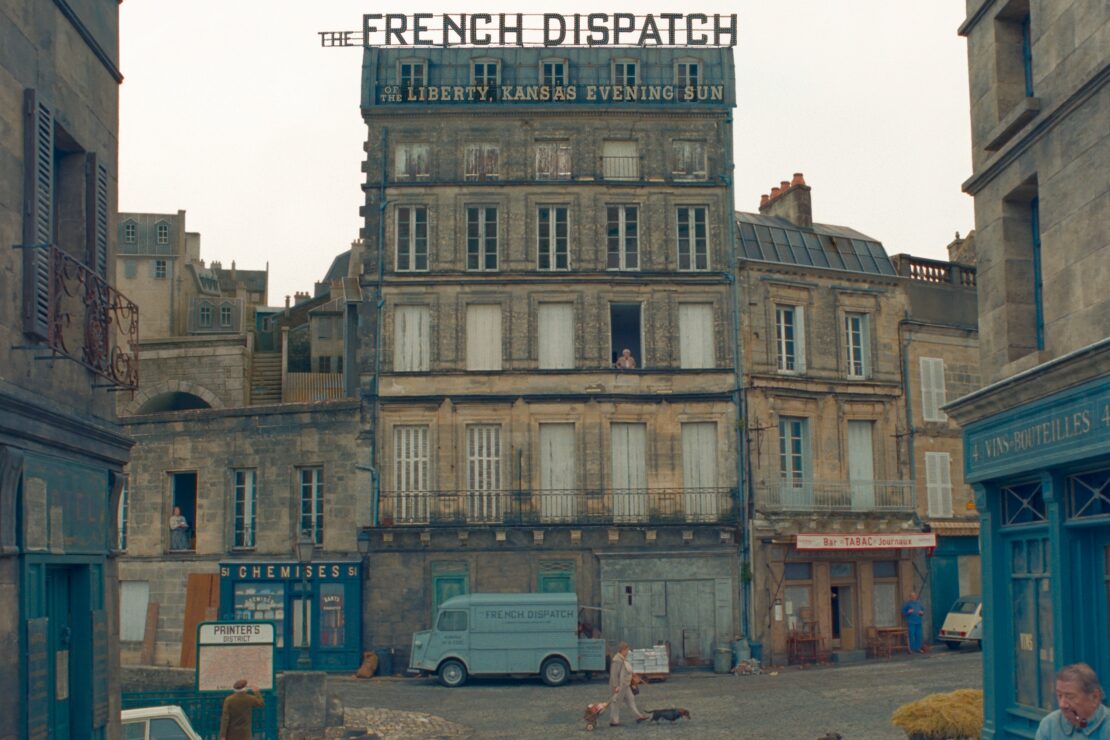Wes Anderson’s newest film is the wacky, wonderful escapism we all need right now

Like almost every facet of human existence, the movie The French Dispatch was thrown for a loop when the pandemic broke out. The film, indie darling Wes Anderson’s 10th feature, was originally slated to premiere in summer 2020. With its lineup of stars — Bill Murray, Timothée Chalamet, and Frances McDormand, to name a few — it was expected to be quite the success. However, as anyone on this side of the first wave can guess, such hopes were dashed come March, and the film’s release was put on hold.
But now, after officially premiering in July at the Cannes Festival, The French Dispatch has arrived in theatres for the general public to enjoy. And while this off-beat, much-delayed movie may have slipped under most people’s radars, those in the know should not hesitate to buy tickets.
The French Dispatch depicts the French branch of an American news magazine, set in the love-child of bleak post-war Europe and Anderson’s peculiar brand of twisted tweeness. That is to say, it takes place in a fictional French city, the gritty yet quaint Ennui-sur-Blasé, sometime in the 50s or 60s. Rather than following a traditional narrative — that would be far too predictable — the film itself mirrors the structure of the magazine and is divided into arts, politics, and food sections. Each feature is presented as a sort of short film, with only a few characters tying all the pieces together.
This use of ‘chapters,’ so to speak, is where the film shines. If the typical Andersonian touches — overly serious dialogue, laughably outlandish characters, and psychedelic-pastel colour schemes — weren’t transportive enough, the Russian-doll effect of embedded narratives is entirely spellbinding. As the audience falls down the rabbit hole of stories-within-stories, the outside world is not merely forgotten, it disappears.
Though some stand up better than others, each section has its merits. The arts feature, titled “The Concrete Masterpiece” — yes, the chapters even have names, this is Wes Anderson after all — details the life and work of a homicidal modern artist, played by Benicio Del Toro. Indefinitely incarcerated in an institution, he spends his time guzzling mouthwash and painting abstract portraits. When his work catches the eye of a determined collector, a bizarre, hilarious tale of money and madness ensues, which reads somewhat as a cautionary tale against the over-commodification of art. And yet, too academic an interpretation would ring false for such a film.
Yes, it is a story of mental prisons and murder, of alcoholism, squalor, depression, and corruption, but it is also utterly absurd. It works, and it is thoroughly entertaining.
The same can be said for the following chapter, the politics and poetry section entitled “Revisions of a Manifesto.” This time, the focus is on a curious student rebellion, led by Timothée Chalamet’s Zeffirelli — a wispily-mustachioed, chain-smoking teenage revolutionary. The students’ mission: for boys to be allowed into the girls’ dorms. Their methods: chess.
This farcical revolt consists mostly of precocious teens arguing over a jukebox, chants of “les enfants sont grognons” (the kids are grumpy), and high-stakes rounds of chess. The storyline is ridiculous, charming, even, in its folly. It is also, however, immaculately performed and my personal favourite of all the film’s chapters.
Succeeding the revolt is “The Private Dining Room of the Police Commissioner,” the food section’s contribution to the movie. Of all the narratives, this one is without a doubt the most difficult to follow. It also felt the least polished of the stories, with less Andersonian sparkle than its precursors. It is not without its charms, however. Though advertised as the food feature, this is mostly the story of a kidnapping. As the chapter unravels, we meet yet another delightfully precocious kid — for readers new to the director, know that this is one of his specialties — as well as some novice criminals, an endearingly brave chef, and far too much of the commissioner’s extended family.
This chapter also features some interesting switches from live-action to animation. With any other director, I would have questioned this choice aesthetically, but with Anderson, I just accept it as another layer of the kookiness. Such is the power of Wes Anderson: he can create the most outlandish, most confusing stories, write very odd dialogue for very odd characters, and still, it will feel somehow right.
COVID-19 or no, The French Dispatch was never going to be a blockbuster hit, nor is it likely to be the most emotional, topical, or buzzy film released this year. Seek it out, however, and you will be rewarded with just under two hours of delightfully peculiar, deliciously escapist fun.






